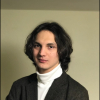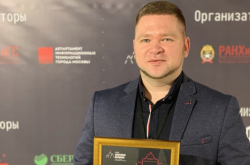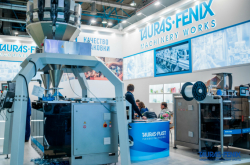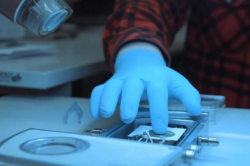Contents:
- How to get into science
- The advantages of ITMO Master’s programs and how to apply
- How to study abroad on a government scholarship
- Best destinations for studying abroad
- Research in China
- Life in China
How to get into science
Ever since I was a kid, I was passionate about physics and chemistry, especially conducting experiments and working in the lab, so, naturally, I wanted to go into science after finishing school. In my hometown of Kaliningrad, I studied at a lyceum specializing in physics and math, which made me want to apply for a Bachelor’s program in physics. At home, most of the programs were about theoretical physics, while I always felt the need to see the material fruits of my labor. Eventually, I decided to study thermal physics at Kaliningrad State Technical University, which was more of an engineering program with an emphasis on applied science.
In my second year, one of my teachers, who was looking for students to collaborate with Immanuel Kant Baltic Federal University, offered me the opportunity to work at an R&D center involved in fundamental and applied nanophotonics. The opportunity to do some real lab work interested me, so I took up the offer immediately.
For three years, I combined work and studies. In less than a year, I attended Lomonosov, an international scientific conference held at Lomonosov Moscow State University, where I became the winner in the Optics category. That victory is what encouraged me to pursue a career in science and made me feel like my research would pay off and be useful.
Of course, it was a lot of hard work, but it paid off, as I had six of my papers published in Scopus-indexed journals by the time I graduated.
Danila Tatarinov in China. Photo courtesy of the subject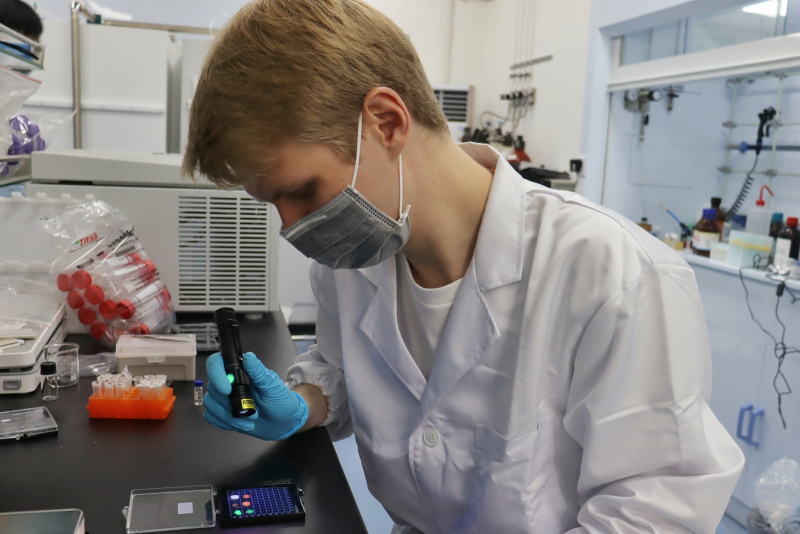
The advantages of ITMO Master’s programs and how to apply
In the final year of my Bachelor’s, I was among the winners of the international school and conference Nanostructures. Properties and Application, which was organized by ITMO’s International Research and Educational Center for Physics of Nanostructures. This meant that I could enroll in ITMO’s Physics and Technology of Nanostructures international Master's program without any entrance exams.
Applying for this program was a bit of a radical shift in terms of my area of study. Earlier, at Immanuel Kant Baltic Federal University, I was part of a great team of researchers who used modern equipment to analyze various organic compounds via luminescence spectroscopy. Our research was limited to simply analyzing the properties of certain materials using optical methods. At ITMO, my focus shifted towards studying perovskites, which are a relatively new class of nanostructured materials that we synthesize ourselves at the lab. The lab is equipped with all the necessary materials and its staff are incredibly skilled and always ready to assist the students if such a need arises.
What interests me the most is the creative aspect of working with nanostructures. Since their properties are pre-determined, you design the entirety of your experiment around the task that you set out to achieve. In light of many potential future applications of nanomaterials, our research could prove highly beneficial.
How to study abroad on a government scholarship
As a first-year Master’s student, I decided to apply for the presidential scholarship for studying abroad that covers tuition fees, accommodation, travel, and visa expenses, and medical insurance. It’s a great opportunity for Russian students to gain some international research experience.
Read also:
Before applying, you need to find a supervisor or a research team that will be ready to accept you as their student; then, you need to get an internship invitation. The easiest way to do this is by asking your supervisor in Russia for contacts of their collaborators who would be willing to take you in, but you could also reach out to researchers on your own.
The main thing is to not be afraid of emailing even the most renowned scientists.
In academia, it’s good practice to reach out to other researchers for internship opportunities. Don’t expect them to react negatively – on the contrary, your aspiration to learn and get new experiences will only be encouraged.
For instance, I first sent my resume to professors of several European universities. A scholar who leads one of the world’s strongest research teams at ETH Zurich responded relatively quickly with an interview offer. Eventually, I passed several rounds of online interviews and was offered the position, but international relations took a sudden hit, so I had to consider other choices. Regardless of the circumstances, I consider this case to be a positive experience.
Danila Tatarinov in China. Photo courtesy of the subject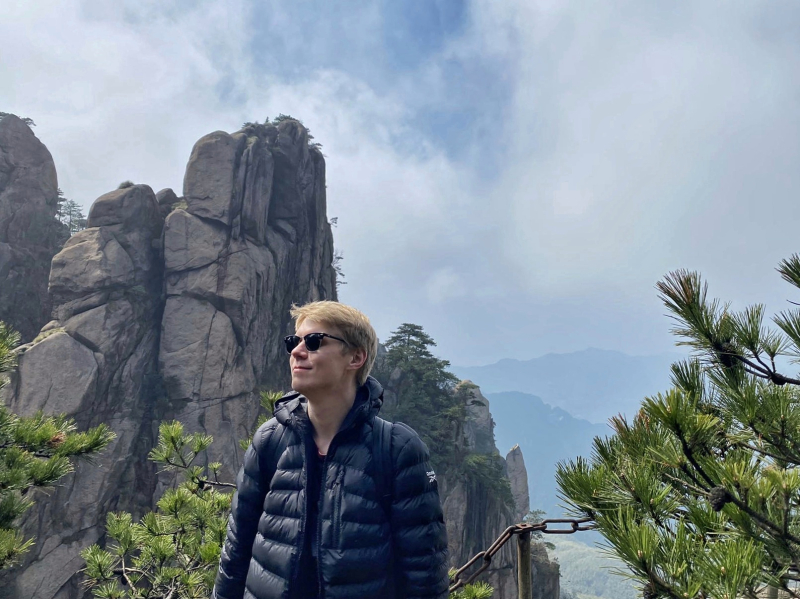
Best destinations for studying abroad
Today, there are many great places where you can go on exchange: in Israel, China and Asia in general, Latin America – there are some really strong research institutions in all these regions.
My research supervisor suggested that I adjust my search criteria and consider an internship with a Chinese research team. I had all the necessary documents ready: letters of reference, academic transcripts, a list of my publications, a language certificate, medical documents, and an expenses estimate. But they were all made with a Swiss internship in mind, so I had to redo everything with just two days to go before the deadline. It didn’t take too long, as the receiving professor at Soochow University is a close partner of our research group.
The hardest part was getting the visa – the lines at the Chinese Consulate are long, so my number came up only two months later. All in all, it took six months to finalize my internship.
Research in China
Right now, I’m doing my research internship at Soochow University’s School of Optoelectronic Information Science and Engineering, more specifically – at a lab dedicated to compact optoelectronic materials and devices. I quickly became part of the team and found my bearings in this new environment, as the main subject of my research at ITMO is closely related to what my Chinese colleagues are working on.
China is one of today’s global leaders in many fields of science. They are quite serious about it here, always striving towards perfection and improvement. In my opinion, one of the key differences from Russian science is a slightly higher degree of diligence, perseverance, and a kind of “rapidity” that often proves to be a serious advantage for Chinese researchers.
For example, my internship coincided with my colleagues moving into a new laboratory, one that was larger and better equipped. To my surprise, this quite difficult process only took them a week – in Russia, I believe that would have taken more time. This approach, in combination with great expertise and access to the most modern equipment, makes it possible to conduct research at a truly high level and, thus, provides great opportunities for scientific development.
In all other respects, the research process isn’t too different from what we do in Russia, with the possible exception of certain cultural differences that have nearly no effect on the work.
Prof. He Huang’s research team at Soochow University. Photo courtesy of the subject 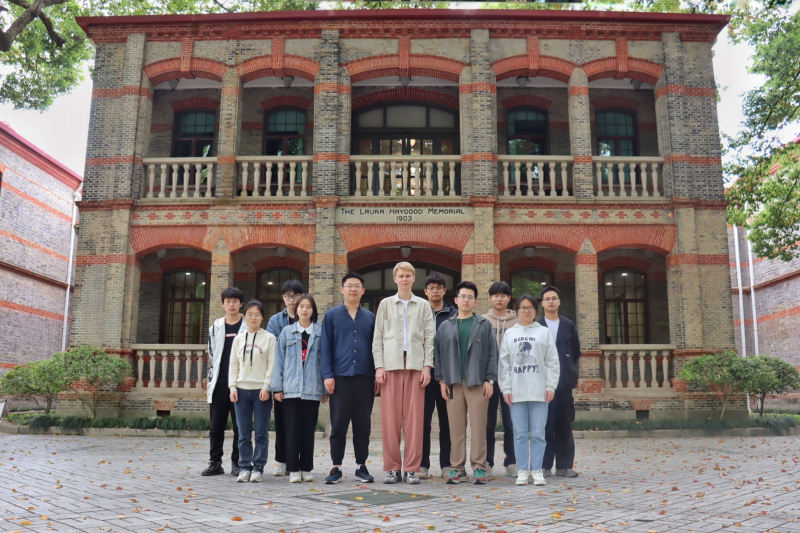
Life in China
All in all, it wasn’t too difficult for me to adapt to life in a new country. A lot of credit for that goes to the people who surround me here – from fellow campus residents (for instance, here, on the other side of the world, I ended up sharing a room with an ITMO graduate who came here for PhD studies) to my research campus colleagues and my local internship supervisor.
Suzhou is an ancient and beautiful city. The local university, with its 100+ years of history, provides all the necessary conditions for a comfortable life.
The campus has everything you need: lots of cafes and cafeterias, quite spacious dorms, libraries, gyms, and all kinds of student clubs.
Prices in China are, on average, slightly higher than in Russia, but you can save a lot by ordering stuff online, which a lot of people here do.
It’s quite easy to find entertainment to your liking here – there are lots of museums, parks, and various natural landmarks. They’re quite impressive. And thanks to the well-developed high-speed train network, you can take weekend trips to discover more of this massive country.



